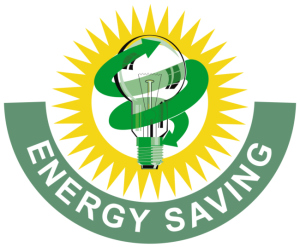 In the old days, saving energy often meant sacrificing comfort and service. Thanks to consumer demand, the Energy Star program and technological advances, taking steps to save energy today more often results in better comfort and enhanced system performance. In fact, the best way to start saving energy this season and beyond is to use a step-by-step plan that incorporates conservation and efficiency efforts for all home systems.
In the old days, saving energy often meant sacrificing comfort and service. Thanks to consumer demand, the Energy Star program and technological advances, taking steps to save energy today more often results in better comfort and enhanced system performance. In fact, the best way to start saving energy this season and beyond is to use a step-by-step plan that incorporates conservation and efficiency efforts for all home systems.
Conservation and Efficiency
Give your energy bills the one-two punch combination by conserving energy and instituting efficiency efforts.
Energy conservation is the practice of saving energy by reducing consumption that results in some loss of comfort and performance. Reducing showering time in your household to save water heating costs is an example of conservation.
Energy efficiency incorporates energy-saving measures and systems to stop and prevent energy losses without a loss of comfort or performance. An example would be lowering the temperature on your water heater, insulating the storage tank, and wrapping all hot water pipes with fiberglass insulation wrap or sleeves. The insulation offsets the reduction in hot water temperature, which supports your energy-saving efforts without sacrificing shower time.
Start Saving Energy Today
A good energy-saving strategy should be written down. Use a pen and notebook to jot down each system of your home, and the steps you wish to implement to start saving energy through conservation and efficiency efforts, projects, and easy quick-start tips for today.
Lighting
Did you know CFLs and LEDs save 40-80 percent electricity compared to traditional incandescent lighting? And, CFLs and LEDs last 10-25 times longer.
- Conservation and efficiency: For a bright outlook in energy savings, replace all incandescent lighting with CFLs and LEDs. The return on investment is substantial and lasting.
- Projects: Install dimmer devices inside the home and motion detectors outside for effective conservation and safety efforts.
Appliances
Home appliances account for a substantial slice of the energy budget, but they also offer many ways to save.
- Conservation and efficiency: Many appliances and electronics use electricity when turned off because of standby mode. Use power strips for small appliances and electronics. Set the dish-washer, refrigerator and clothes washer on energy-saving modes.
- Projects: Look for Energy Star-qualified appliances the next time you upgrade.
Air Sealing
Are your heating and cooling dollars being lost through air leaks in your home’s envelope?
- Conservation and efficiency: Use foam weatherstripping to seal the attic hatch. Rubber or silicon tubing helps seal entry doors. Caulk is handy to seal small cracks and gaps around window frames.
- Projects: Consider a professional energy audit to identify where energy is being wasted in your Savannah area home. Home efficiency upgrades are practical solutions that save energy and increase comfort for many years.
Insulation
Check the insulation in your home. Heat gain/loss increases heating and cooling expenses, too, and hinders comfort.
- Conservation and efficiency: The attic should be insulated to as much as R-60 in our region, according to Energy Star recommendations. Inspect your current insulation first for mold, dampness and blown insulation.
- Projects: A professional heat-imaging scan can quickly and accurately reveal insulation deficiencies in the envelope that are otherwise difficult to detect, such as inside finished walls. Heat-imaging is included in an energy audit, or you may schedule one separately.
HVAC
The heating, ventilation and cooling systems account for about half of the energy budget. Condition your home wisely.
- Conservation and efficiency: Schedule fall maintenance with your HVAC contractor to make sure your furnace or heat pump is operating efficiently and safely. Do the same for your A/C or heat pump in the spring for efficient cooling. Check the air filter each month.
- Projects: Consider upgrading to a programmable thermostat. This is a practical and convenient way to save energy and maintain home comfort.
Window Treatments
Windows are poor insulators, and they are responsible for substantial heat gain/loss in the average home.
- Conservation and efficiency: During the heating months, open draperies and shades on sun-facing windows during daylight hours, and close them at night. Do the opposite during the cooling months.
- Projects: Use window treatments to reduce heat gain/loss. Shutters and storm panels are excellent for reducing heat loss during the heating months. Draperies and shades are available in many styles to help reduce heat gain on sun-facing windows, and enhance interior design.
For more details about these tips to start saving energy in your Savannah area home, please contact Byrd Heating and Air Conditioning today.

